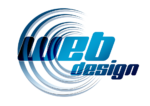The #healthcareindustry is constantly evolving, with new products and #innovations being developed to improve #patientoutcomes and #qualityoflife. One area where there is significant #potential for #integratedbusiness efforts is in the #marketing of #medicaldevices along with #pharmaceuticalproducts. By combining these two areas, companies can offer more comprehensive and #effectivesolutions for patients, while also increasing #revenue and #marketshare .
One of the main benefits of #integrating medical devices and pharmaceutical products is the ability to offer more holistic #treatmentoptions . For example, a pharmaceutical company that specializes in #diabetesmedications could partner with a medical device company to offer #glucosemonitoringdevices or #insulinpumps that work in conjunction with their #medications . This can improve #patient outcomes by providing more #personalized and #effective treatment options that address the root cause of the #disease.
In addition to #improvingpatientoutcomes, integrated marketing efforts can also benefit companies by #increasingrevenue and #marketshare . By offering more #comprehensivesolutions, #companies can #differentiate themselves from competitors and capture a larger share of the market. They can also leverage their #existingcustomer base to #cross-sell and upsell related products, which can increase revenue and #profits .
Another benefit of integrated marketing efforts is the ability to provide better #customerservice and #support . When companies offer a range of related products, they can provide more personalized and effective support to customers by understanding their unique needs and preferences. This can lead to higher #customersatisfaction and #loyalty , which can help to further increase #marketshare and #revenue.
However, integrating medical devices and pharmaceutical products can also present #challenges, such as #regulatorycompliance and #qualitycontrol. Companies must ensure that their products meet all #regulatoryrequirements and that they are #safe and #effective for #patients. They must also ensure that their #manufacturing #processes are robust and #reliable , and that they have #effectivesystems in place to manage any #potentialissues or #recalls .
In conclusion, integrating medical devices and pharmaceutical products can be a highly beneficial business strategy for companies in the healthcare industry. By offering more comprehensive and effective solutions for patients, companies can improve patient outcomes, increase revenue and market share, and provide better customer service and support. However, companies must also be mindful of the regulatory and quality control challenges that come with this approach, and ensure that they have the necessary systems and processes in place to manage these risks.




